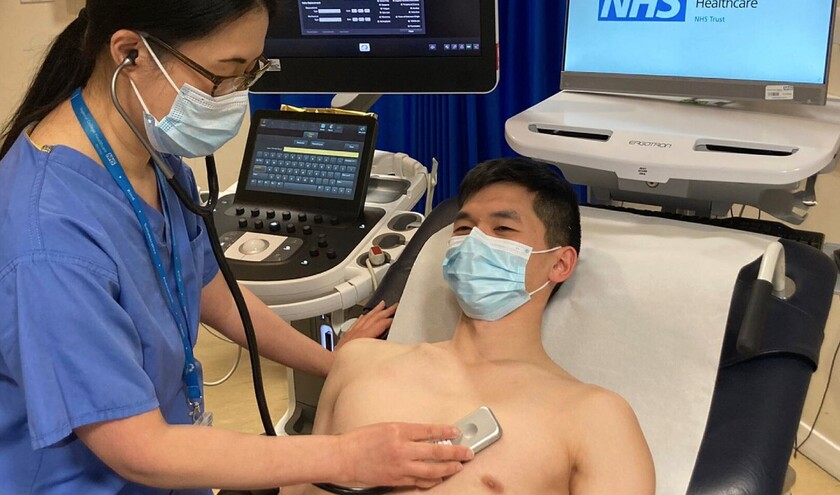The TRICORDER programme, which is led by researchers at Imperial College London and funded by a £1.2m award from the NIHR, will deploy AI-enabled smart stethoscopes to assist clinicians in their evaluation of heart failure.
The programme is a collaboration between the NHS North West London ICS, Betsi Cadwaladr University Health Board and Imperial College London.
A total of 200 GP practices across Northwest London and North Wales, covering more than three million patients, will randomly be allocated to receive an AI-stethoscope or continue with usual care for patients.
Patients visiting their GP using the AI stethoscope will receive a brief, non-invasive heart exam, using an Eko digital stethoscope and app powered by the company's AI. If the device detects possible signs of cardiac disease, the GP can rapidly start further tests and potentially life-saving treatments.
Patients continuing attending GP clinics not using the AI tool will continue to receive typical care for detection and treatment of heart failure.
The project is believed to be the first of its kind, sector-wide use of an AI tool in primary care and will assess if the commercially available tool – the Eko DUO device – can improve diagnoses for heart failure and reduce costs for the NHS.
Co-investigators Dr Patrik Bächtiger and Dr Mihir Kelshiker, from the National Heart and Lung Institute at Imperial, said: ‘Implementing this tool in primary care could save the health payer system £2,400 per patient, eliminating the potential need for an emergency room visit.
‘Currently, four out of five patients are diagnosed too late, after emergency hospital admission, and they are likely to die prematurely.
‘GPs have no accurate, easy-to-use tools to quickly check for heart failure. And if they suspect a patient may have heart failure, patients may go through a long and rarely completed pathway to diagnosis. Being able to diagnose heart failure early on maximises the benefits of treatments for patients, improving their symptoms, quality of life and survival.'



